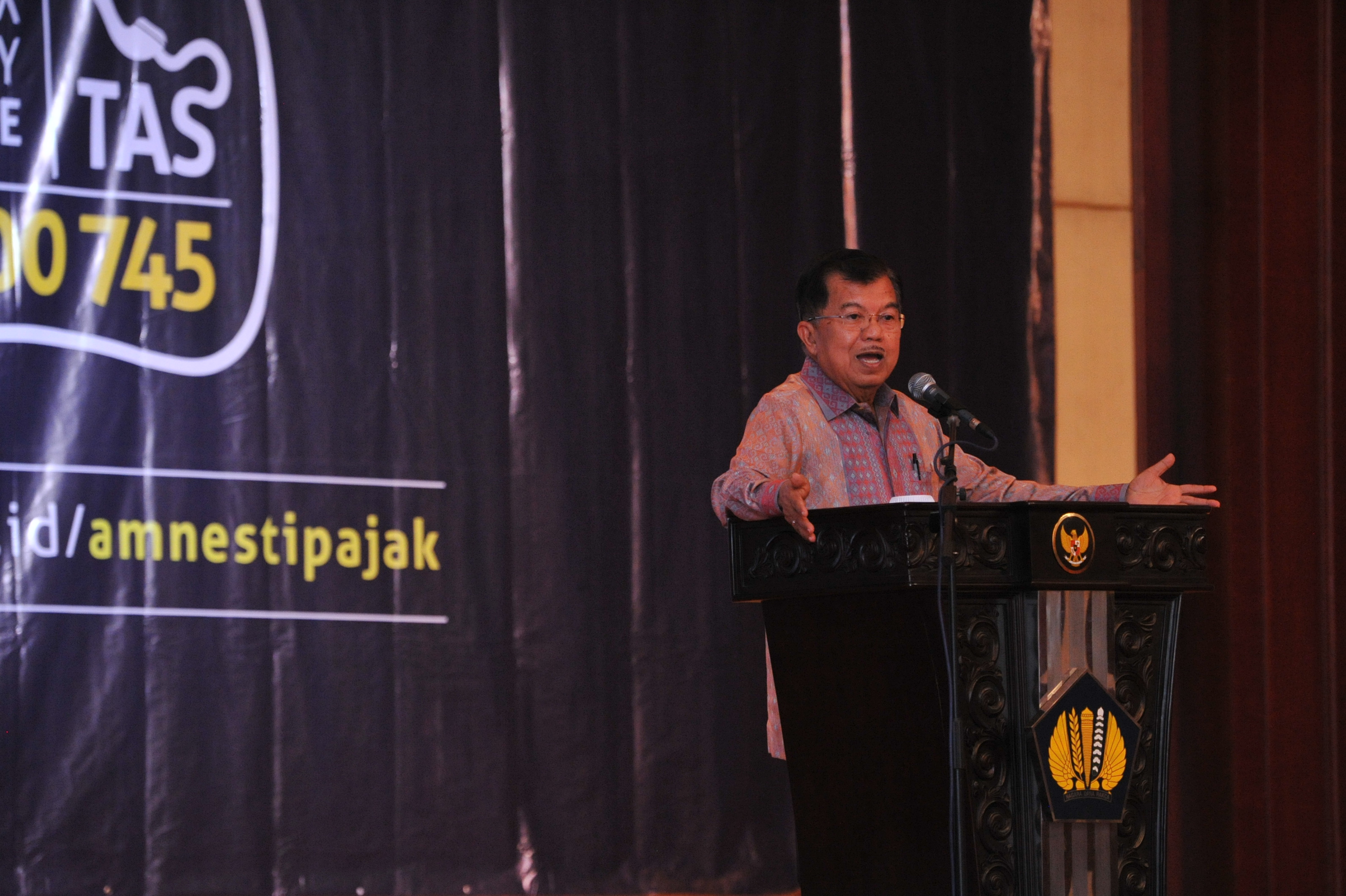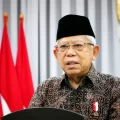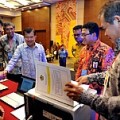Jakarta-wapresri.go.id. Tax amnesty policy is mercy or luxury granted by government to businesses and it is not given every year. Indonesia had a similar policy 32 years ago, that is in 1984. Therefore, Vice President Jusuf Kalla encouraged businessmen to make use of this opportunity, since such this policy will not be existing next year, or even up to next 30 years.
“This is the government’s generosity to the entrepreneurs, because we love you. Otherwise, we just sent you to jail or fine you,” said the Vice President in his speech at the dissemination of Tax Amnesty Law at Dhanapala Building Hall of the Ministry of Finance, on Thursday (July 21).
According to him, imprisonment or a fine is imposed on those who commit sin to the state, that is by violating the law. In the context of taxation, what is meant by is sin here a violation for not carrying out what is contained in the law, which among other things is stating that in every company operating, 30% of the stake belongs to government.
“Therefore in every benefit of 100, 25 of it belongs to the state and must be submitted to the state in the form of taxes. This is an obligation with sanctions attached if not well executed,” said the Vice President.
However, Vice President regretted that many businessmen put their money in foreign countries like in Singapore, Hong Kong, and Japan to avoid taxes. This, he added, will only make then unable to live peacefully as they are always suspected with their source of money.
“In fact, government wants its businessmen to live peacefully with this tax amnesty,” he said.
According to Mr. Kalla, this year Indonesia will improve the whole system of taxation technology, and is expected to be completed next year so that all banking transactions will be monitored.
Amnesty, the Vice President said, was also given by government, although it is not related to taxes, that is in the Aceh peace process. Thousands of people who should have been imprisoned were not imprisoned as long as their weapons are held to be submitted. They were then forgiven.
Concluding his speech, the Vice President appealed to all taxpayers to jointly build the nation for the common good.
“So let us come to terms with the state. We need more budget to improve the country and you will all surely get the benefit in the end from this. Only democratic citizens pay taxes,” he said.
Earlier, Finance Minister Bambang Brodjonegoro said that tax amnesty policy has the potential to increase revenues and make the budget more sustainable.
“If our budget is more sustainable, the government’s spending ability will also be better. This automatically will support development programs not only in building infrastructure but also in realizing public welfare,” said Minister Bambang.
Bambang added tax amnesty this year will greatly assist the government’s efforts to improve the condition of the economy and development, to reduce unemployment, to alleviate poverty, and to lessen economic inequality.
Besides, he added, from fiscal or tax perspective, such policy is expected to be followed by the repatriation of part or all the assets of Indonesians abroad that is hoped will strengthen the country’s macro economic stability.
“To Indonesia, this policy is very strategic because of its macro, thorough, and fundamental impact to the economy of Indonesia,” said Bambang.
Meanwhile Chairman of the Indonesian Employers Association (Apindo), Hariyadi Sukamdani, said that his organization has consistently been fighting since twelve years ago for the implementation of Tax Amnesty.
“Law No. 11/2016 on Tax Amnesty is a tax policy that is needed by taxpayers in order to be able to fill out and submit their tax forms (SPT). We are committed to make Indonesia as one of the growth engines of the world economy,” said Sukamdani.
Tax Amnesty is the government tax policy that is imposed until March 31, 2017. This policy is for all levels, both employees and employers, both small and large taxpayers, to obtain the elimination of the tax payable, and to avoid administrative and criminal sanctions in the area of taxation.







